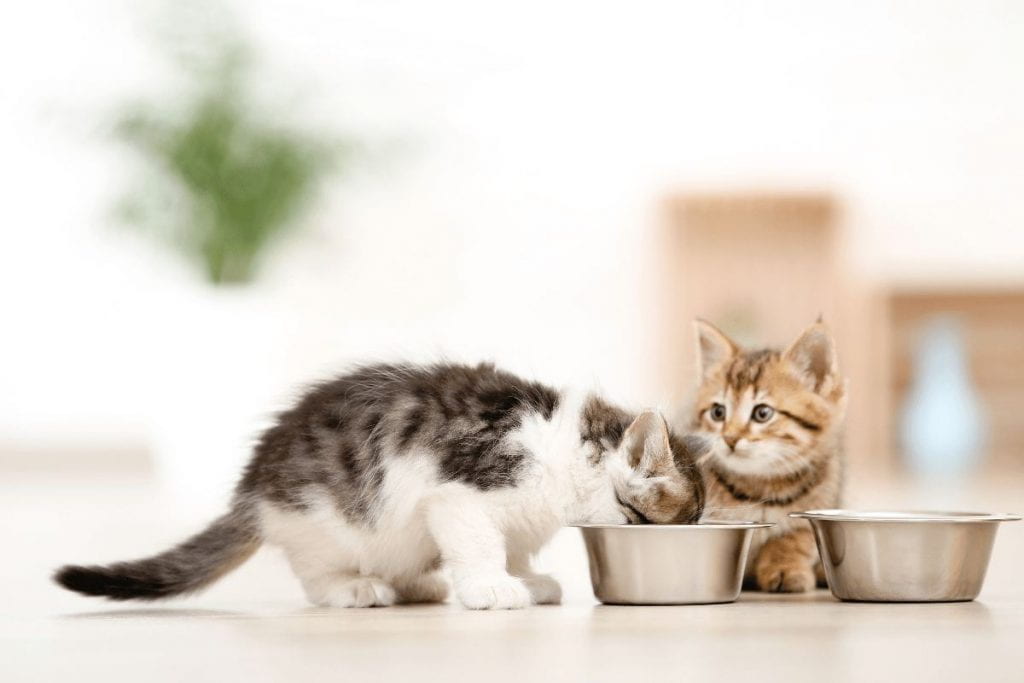A New Publication is Hot Off the Press!
Congrats to Hannah Godfrey (MSc., PhD Student) for her recent publication in PLOS ONE; Dietary choline in gonadectomized kittens improved food intake and body composition but not satiety, serum lipids, or energy expenditure.
What is Choline?
Choline is an essential nutrient for cats, like it is in many species, meaning that it cannot be made by the body in sufficient amounts, therefore, it is required in the diet. You can find choline in various food sources, such as meats, organ meats, eggs, and grains.
The body needs choline for many functions such as for fat metabolism and for the synthesis of betaine. Betaine can then go on to promote the re-synthesis of s-adenosyl methionine, an important methyl-donor used throughout the body for numerous functions.

Why Investigate Choline Supplementation in Kittens?
Did you know that obesity affects up to 63 % of cats globally? Obesity is characterized by excessive body fat mass and can be detrimental to overall health, leading to other health conditions such as diabetes and arthritis. Once a cat is obese, it can be difficult to get their weight back down and weight loss is not without its own set of consequences. In addition, weight regain is all too common. By preventing the onset of obesity, we can help to reduce the number of cats affected by the obesity crisis.
Major risk factors for obesity are the spay/neuter process and free feeding. But another factor that often goes unnoticed is excessive weight gain during the growth phase. Cats who are overweight or obese during their kitten stage are more likely to be obese into adulthood. Therefore, this study targeted the potential benefits of choline supplementation in a population of kittens that were gonadectomized and fed to mimic free choice feeding.

What Did This Study Find?
Neutered kittens supplemented with additional dietary choline (300mg/kg BW0.75) for 12-weeks ate less food, and energy, than neutered kittens without additional choline supplementation. This resulted in the supplemented kittens gaining less body fat which reduced body weight gain.
It’s important to note that while these kittens had less body weight gain, they had similar lean body mass to the non-supplemented group and maintained body weight’s that were within the range of published growth curves for kittens. This means that choline supplementation did not affect healthy growth, merely prevented excessive weight gain during the process.
Based on the results of this study, it is difficult to conclude how choline supplementation drove these findings. The authors did not find changes in energy expenditure, satiety hormone concentrations, or in serum lipids in kittens supplemented with choline. More research is needed to deepen our understanding of choline and its benefits for obesity prevention.
What’s Next?
Previously, our team published a paper investigating the lipotropic effects of choline supplementation in obese cats. You can read more about it HERE.
The results of these two studies tell us that while choline has benefits with regards to obesity, more research is needed. The first step is to determine the best dose for choline under different conditions. Future research may also consider comparing choline supplementation to other nutrients reported to have lipotropic effects.
This research was supported by a Natural Sciences and Engineering Research Council of Canada Grant in partnership with Elmira Pet Products. The choline chloride supplement was kindly provided by Balchem Corporation.
The OVC Pet Nutrition Team continues to investigate the role of choline for the health of pets. Stay tuned for more!
Written by: Hannah Godfrey, MSc., PhD Student
Edited by: Shoshana Verton-Shaw, RVT, VTS (Nutrition) and Dr. Adronie Verbrugghe, DVM, PhD, European Veterinary Specialist in Veterinary and Comparative Nutrition® (Dip ECVCN)


